The twisted logic of evangelical colleges welcoming straight atheists and rejecting gay Christians
At many evangelical colleges, you're better off godless than gay


A free daily email with the biggest news stories of the day – and the best features from TheWeek.com
You are now subscribed
Your newsletter sign-up was successful
At evangelical colleges, is being straight more important than believing in God?
You might expect that announcing your lack of faith would carry the worst possible social stigma at Asbury University, a conservative Christian college in Kentucky where chapel attendance is required and most classes begin with prayer. But for Taylor Darden, coming out as gay was worse.
"I was much more secretive about my sexuality than my agnosticism," said Darden, who graduated from Asbury in 2010.
The Week
Escape your echo chamber. Get the facts behind the news, plus analysis from multiple perspectives.

Sign up for The Week's Free Newsletters
From our morning news briefing to a weekly Good News Newsletter, get the best of The Week delivered directly to your inbox.
From our morning news briefing to a weekly Good News Newsletter, get the best of The Week delivered directly to your inbox.
Although I was teaching at Asbury while Darden was a student, our paths did not cross until after he graduated. Darden told me he eventually came back to the Christian faith, but considered himself agnostic in college. "It's definitely easier to be a non-believer than to be gay at places like Asbury."
When Darden says "places like Asbury," he's referring to the many highly ranked Christian colleges across the country that welcome atheists but forbid gay relationships. The result? An odd policy for a religious institution: Students who discard religion are embraced, but students in same-sex relationships — including legally married gay Christians — get rejected. Although an openly gay applicant could enroll at many of these institutions, he or she must remain celibate and refrain from same-sex dating and same-sex marriage while enrolled at the institution.
Asbury, ranked third among regional colleges in the South by U.S. News and World Report, requires a faith statement from faculty and staff, but not from students. In other words, non-believers are free to enroll if they meet relevant admission criteria and agree to follow the rules. However, the student handbook specifically forbids same-sex intimacy, whether in a legal marriage or not. "All forms of sexual intimacy that occur outside the covenant of heterosexual marriage are sinful distortions of the holiness and beauty which God intended," says the college's statement on human sexuality.
The same goes for Missouri's College of the Ozarks, ranked by U.S. News as the fourth best regional college in the Midwest. The college's dean of admissions confirmed in an email that students are not required to sign a statement of faith. Consequently, on this Christian campus, a student could openly discuss his lack of belief in God, but could not show affection to his boyfriend. And to ensure there's no confusion on the issue of same-sex relationships, the student handbook explicitly forbids "touching, caressing, and other physical conduct of a sexual nature with a person of the same sex."
A free daily email with the biggest news stories of the day – and the best features from TheWeek.com
These two institutions are members of the Council for Christian Colleges and Universities, a conservative association of 179 institutions (118 in North America) dedicated to "Christ-centered higher education" and "faithfully relating scholarship and service to biblical truth," according to the organization's website. CCCU schools enroll nearly half a million students every year.
Not all CCCU colleges admit non-believers. Some schools, such as Cornerstone University in Michigan and Evangel University in Missouri, require statements of faith to enroll. But there seems to be something hypocritical to the schools that admit non-believers while forbidding gay relationships.
This occurred to me when I was teaching at Asbury, my alma mater and my employer during my doctoral coursework at the University of Kentucky. The way LGBT issues were handled by Asbury led in part to my decision to leave the college for the University of Tampa in 2015.
A few years ago, a student in one of my journalism classes at Asbury discussed his atheism openly, with no noticeable reaction from the other students. I'm still in contact with him, so I recently asked him if he thought gay students were under more pressure at Asbury than atheists. "I couldn't imagine being an LGBT student on Asbury's campus," said the student, Stephen Gallutia, who graduated from Asbury in the spring. "Without a doubt, I believe that it would be harder than being an atheist."
In fact, atheist students get so much respect at Christian colleges, they can be elected to student government's highest office. Case in point: A CCCU school made headlines in 2013 when the student body president, Eric Fromm, revealed his atheism in a column for the school newspaper at Northwest Christian University in Oregon. The reaction from the student body was "overwhelmingly positive," according to USA Today's account. The school's director of university relations, Jeannine Jones, showed little surprise at his announcement: "While the majority of our students profess a Christian faith, not all do," she told ABC News. "We as an institution meet students where they are at and believe that our God is big enough."
Alas, LGBT students — including gay Christians — often do not get the same reception at conservative Christian colleges. Baylor University, the nation's largest Baptist university, dropped its ban on "homosexual acts" in 2015. But fear of LGBT students still lingers at the Waco, Texas, school. When I interviewed LGBT atheists at Baylor, most said they were more open about their atheism than their sexuality.
"I choose to proclaim my atheism very proudly; I prefer to keep my sexuality quiet," said Eric O'Bannon, a bisexual member of Baylor's Secular Student Alliance.
Multiple emails to Baylor University spokesperson Lori Fogleman seeking clarification about whether legally married gay Christians could now enroll at the school were not returned.
None of this is surprising to David Olsen, Chair of the Department of Communication Studies at California State University, Los Angeles. Olsen, who studies evangelicalism, is a gay Christian who attended a conservative Christian college for his undergraduate degree. He says LGBT Christians threaten evangelical communities in ways that atheists do not.
"Conservative evangelicals have hung their entire position not really on the Bible, but on fears of the Other," he told me. "If you are gay, you will be alone, diseased, drug-ridden, unhappy. And when one of their own — an LBGTQ believer — is not these things, their entire system crumbles."
Of course, leaders of these colleges do not believe they are being inconsistent. At many CCCU schools, students are free to declare any sexual identity. But a discrepancy arises with regard to dating: Straight students can date, hold hands on campus, and announce their relationship, while LGBT students cannot. The emphasis is on behavior.
But what's even more troubling for some LGBT students is that the rules against same-sex intimacy show up right beside condemnation of "sexually exploitative or abusive behavior."
In reaction to that wording, a student from Messiah College in Pennsylvania, who spoke to me on condition of anonymity, said the comparison of same-sex intimacy to criminal sexual behavior reinforces negative connotations about the LGBT community. "Seeing the behavior as sinful alongside examples like sexual exploitation definitely doesn't help the stigma," said the student, who identifies as a queer bisexual. "It just feeds into the 'love the sinner, hate the sin' rhetoric."
For Brantley Gasaway, a professor of religious studies at Bucknell University, the disagreement comes down to the definition of marriage. "The most important thing to understand is that these schools recognize only covenantal heterosexual marriages as 'marriages,' even as same-sex marriages are now fully recognized by the state," Gasaway told me. "As religious schools, they are free to align their educational and behavioral standards with their religious convictions."
Conservative evangelical leaders are often frustrated by what they view as unfair attacks on their character based on their honest interpretation of Christian scripture. In other words, they can't help it if the Bible forbids same-sex intimacy.
However, a common rebuttal to this argument is that Christian scripture has many other commandments that evangelicals frequently disregard. For example, in Mark 10:11-12, Jesus says, "Whoever divorces his wife and marries another commits adultery against her." Another common example is 1 Corinthians 14:34, which says, "Women should remain silent in the churches. They are not allowed to speak, but must be in submission, as the law says."
Acceptance of LGBT Christians by evangelical colleges may start to improve as younger believers exert more influence on the debate. As a Pew Research Center report from last year noted, "Roughly half (51 percent) of evangelical Protestants in the millennial generation (born between 1981 and 1996) say homosexuality should be accepted by society."
But a more inclusive understanding of sexuality by evangelical colleges did not come in time for Darden, the 2010 Asbury graduate.
"Strictly speaking, a man who self-identified as gay on Asbury's campus, at least while I was there, would have been looked at as someone fallen, someone in deliberate disobedience to God," said Darden, who now runs a theater program for adults with intellectual disabilities in Philadelphia. "Very few students would have admitted, even privately, to be considered gay, lesbian, or bi, although a good many admitted privately to 'struggling with homosexuality.'"
He added, "The word 'struggle' was key: It meant that you didn't want to be gay, you didn't have to be, and that you were fighting as hard as you possibly could to not be gay."
As a result of this experience, Darden can't hide his disappointment with his alma mater. "I wouldn't go to Asbury if I had it to do over again," he said. "It robbed me of so much time for growth."
However, despite the setbacks, Darden's spiritual journey had a happy ending. "I returned to my Christian faith later," he said, "after I reconciled my sexuality with Christianity and found a welcoming church community."
-
 How the FCC’s ‘equal time’ rule works
How the FCC’s ‘equal time’ rule worksIn the Spotlight The law is at the heart of the Colbert-CBS conflict
-
 What is the endgame in the DHS shutdown?
What is the endgame in the DHS shutdown?Today’s Big Question Democrats want to rein in ICE’s immigration crackdown
-
 ‘Poor time management isn’t just an inconvenience’
‘Poor time management isn’t just an inconvenience’Instant Opinion Opinion, comment and editorials of the day
-
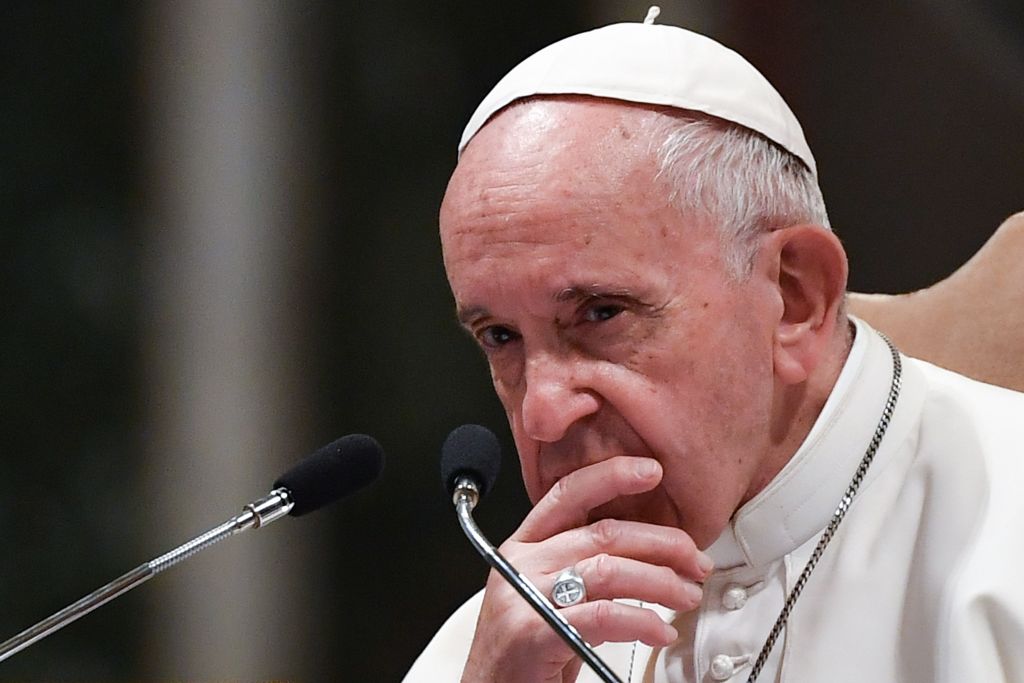 Pope Francis speaks about sex abuse scandals, Trump, and his conservatism
Pope Francis speaks about sex abuse scandals, Trump, and his conservatismSpeed Read
-
 Notre Dame is a magnificent monument to a misunderstood age
Notre Dame is a magnificent monument to a misunderstood ageThe Explainer Every now and then, the stars align to create a virtuous cycle of creative brilliance, which illuminates civilization for centuries afterwards. The great cathedral arose in such an hour.
-
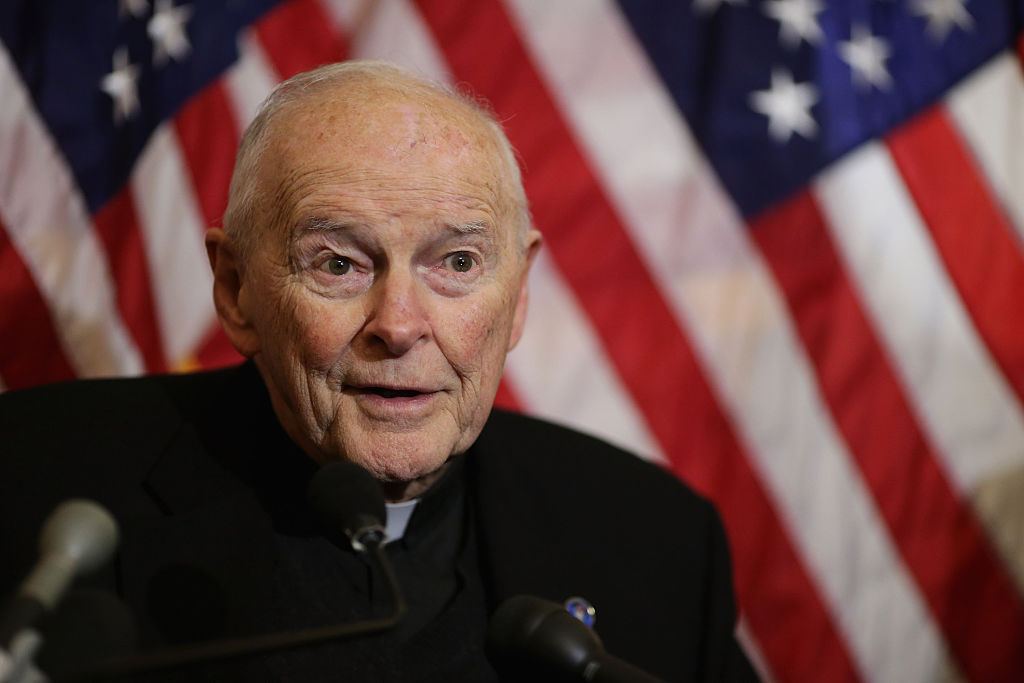 Pope Francis makes unprecedented decision in defrocking Theodore McCarrick
Pope Francis makes unprecedented decision in defrocking Theodore McCarrickSpeed Read
-
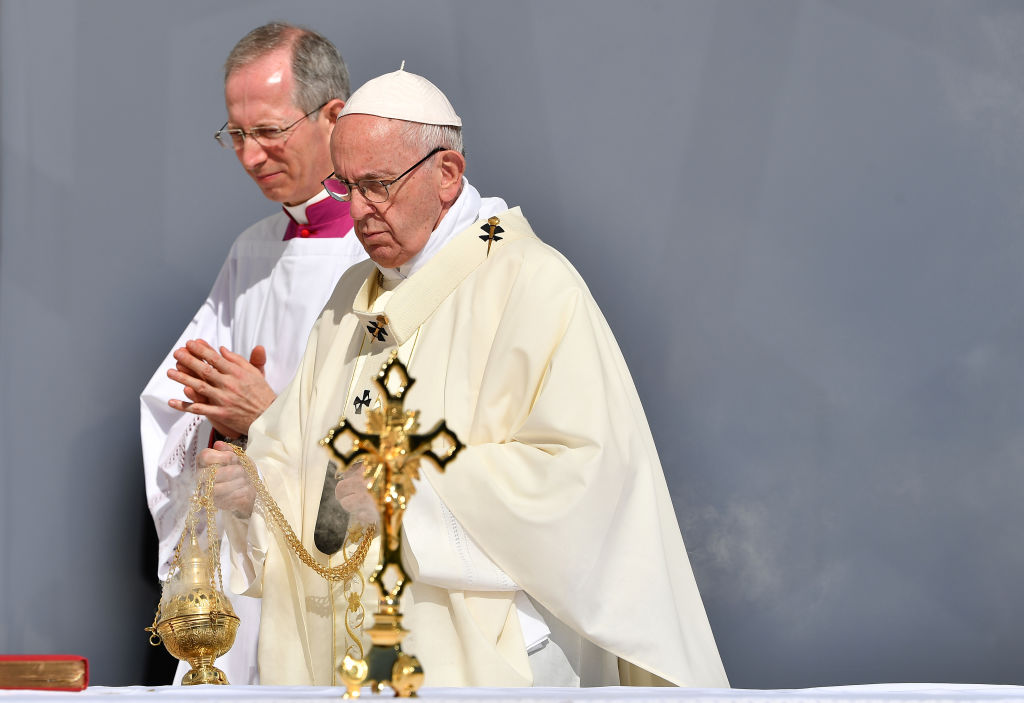 For the first time, Pope Francis publicly admits priests and bishops have sexually abused nuns
For the first time, Pope Francis publicly admits priests and bishops have sexually abused nunsSpeed Read
-
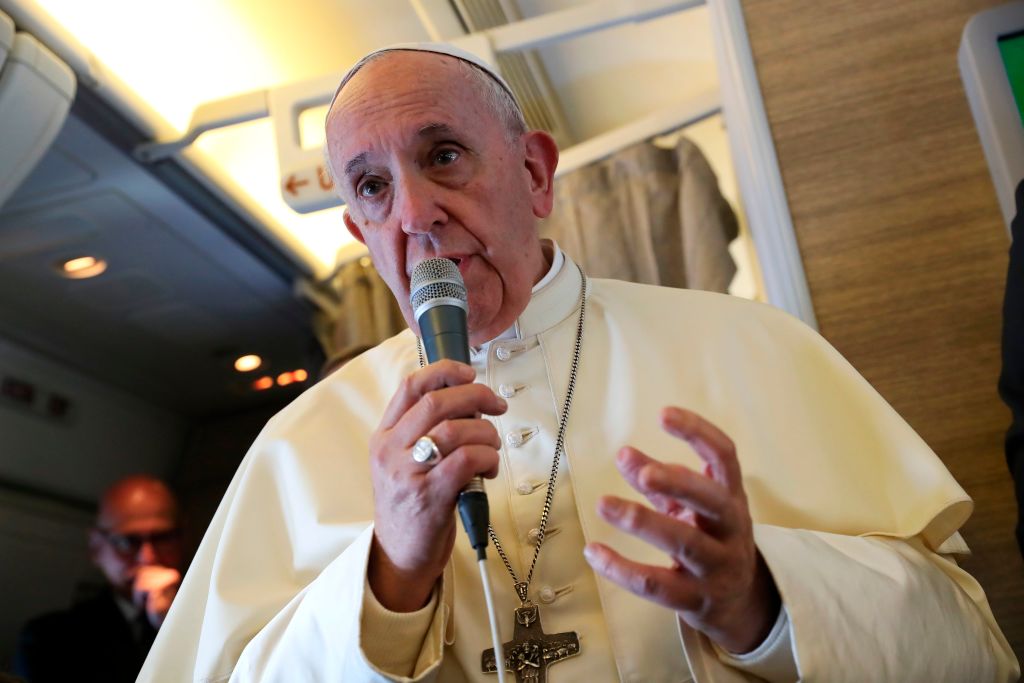 Pope Francis calls for peace in Yemen
Pope Francis calls for peace in YemenSpeed Read
-
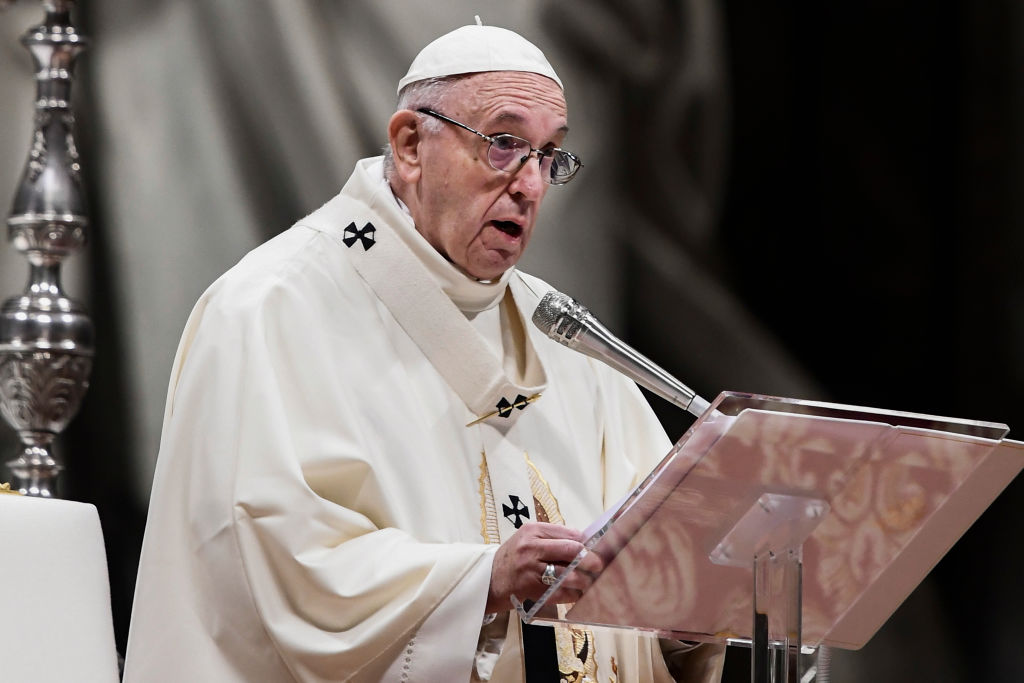 Pope Francis to abusive priests: 'Hand yourself over to human justice'
Pope Francis to abusive priests: 'Hand yourself over to human justice'Speed Read
-
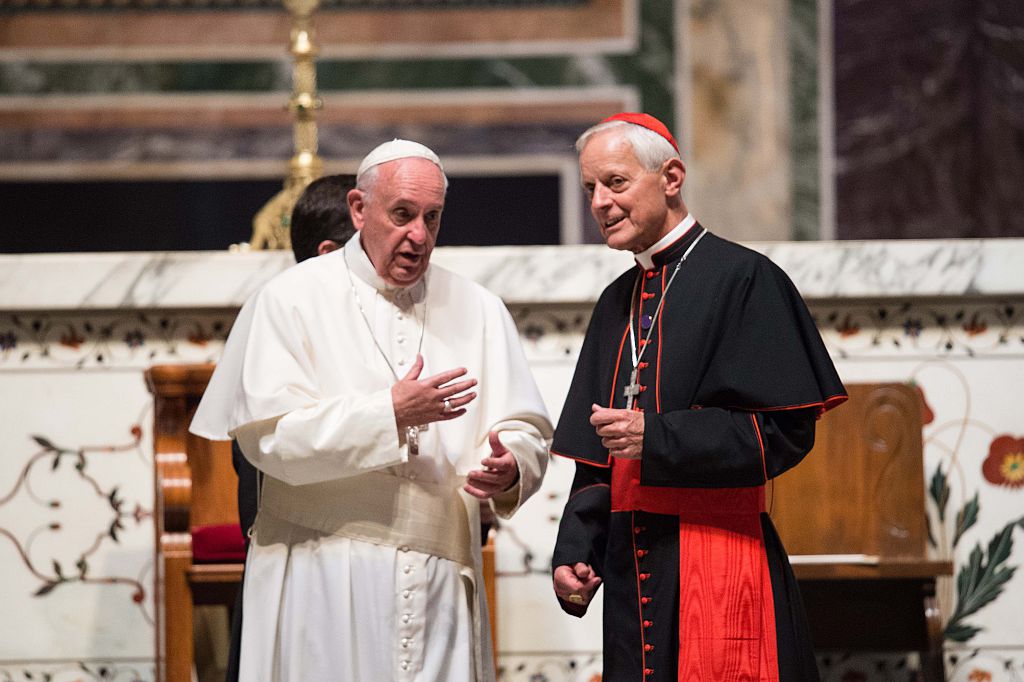 Pope Francis accepts resignation of embattled Washington Archbishop Donald Wuerl
Pope Francis accepts resignation of embattled Washington Archbishop Donald WuerlSpeed Read
-
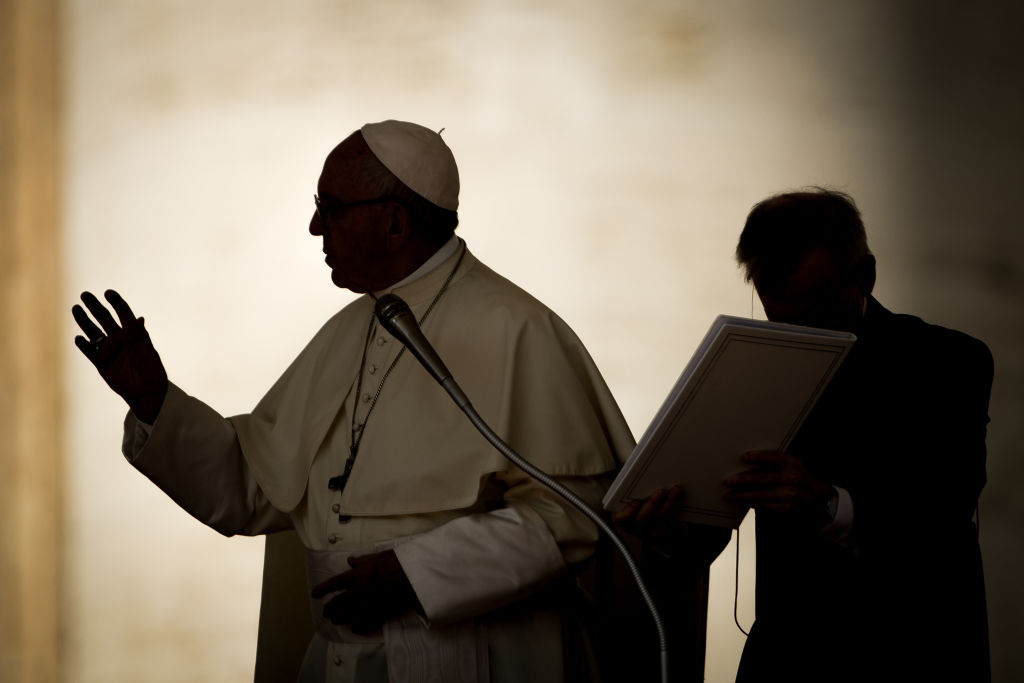 Pope Francis defrocks Chilean priest over sex abuse scandal
Pope Francis defrocks Chilean priest over sex abuse scandalSpeed Read
